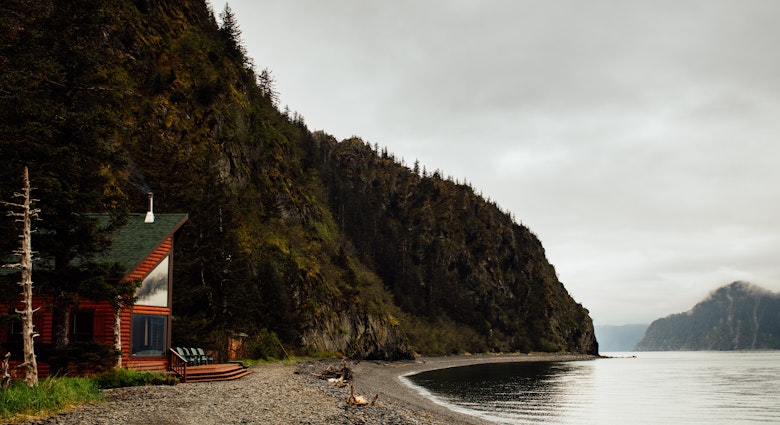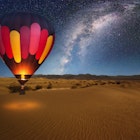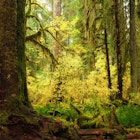
The best US national parks for stargazing, according to star map makers
Oct 7, 2020 • 3 min read

A guide outlines the best US national parks for stargazing © Under Lucky Stars/ Unsplash
Stargazing has become a very popular activity, and one company has released a guide ranking the US national parks it considers best for admiring the night sky. Star map company, Under Lucky Stars, compiled the guide, saying that some of the best spots in the world to witness the constellations are found at these national parks.
"Nature is soothing, and gazing at the night sky with friends and family is the perfect way to spend a relaxing break with all the hustle and bustle of the real world that's currently taking over," says Zoltan Toth-Czifra from Under Lucky Stars. "We determined the best spots for stargazing to give US citizens inspiration for their next trip to get away and experience the true beauty of the night sky above us. We took into consideration the darkest skies for people to stargaze from, whilst factoring the park's accessibility and busyness, to ensure the ultimate stargazing experience." Here are the top five parks selected, and the full list is available here.
1. Great Basin National Park, Nevada
Great Basin National Park was deemed to be the best stargazing hot spot in the US. Spanning Nevada, much of Oregon and Utah, and sections of California, Idaho, and Wyoming, the Great Basin is the largest area of contiguous endorheic watersheds in North America. With only 131,802 yearly visitors, this park is one of the best to stargaze from without being disturbed by other visitors.

2. Big Bend National Park, Texas
Big Bend National Park is located in southwest Texas and borders Mexico. It holds national significance as the largest protected area of Chihuahuan Desert topography and ecology in the US. This park also includes the entire Chisos mountain range. Thanks to its vast surface area, it is one of the best parks to stargaze from as there is very little light pollution.

3. Redwood National Park, California
Redwood National and State Parks lie along the coast of northern California. They consist of Redwood National Park, California's Del Norte Coast, Jedediah Smith and Prairie Creek Redwoods State Parks. The combined parks span 139,000 acres and feature old-growth temperate rainforests. Redwood National Park scored highly with easy accessibility, very low light pollution and a yearly footfall of 504,722 visitors – a great combination to see the stars.

4. North Cascades National Park, Washington
The North Cascades located in Washington State is a vast terrain of wilderness. Filled with a varied species of animals and birds, the remote park is an outdoor dream. With just 38,208 yearly visitors to the vast land combined with low light pollution, the park is the perfect peaceful destination to enjoy the stars in the sky.

5. Voyageurs National Park, Minnesota
Close to the Canadian border, Voyageurs National Park is the perfect canvas to sit and enjoy the stars. Located in northern Minnesota, the park is known for its stunning forestry and lakes, but mostly for its overall peaceful surroundings. The park welcomes 232,974 visitors annually, which combined with low light pollution lands it in the top five.

You may enjoy the Lonely Planet book, Dark Skies: A Practical Guide to Astrotourism, which includes guides to 35 dark-sky sites and national parks, where to see the aurora, the next decade of total solar eclipses and how to view rocket launches, plus the lowdown on commercial space flight, observatories and meteor showers.
You might also like:
The Pacific island of Niue is the first whole country to become a dark sky nation
Astrotourists love these Dark Sky Communities for urban stargazing
Explore related stories




 BeachesUltimate weekend on the Olympic Peninsula: enchanted forests, tide-pooling and Twilight encounters
BeachesUltimate weekend on the Olympic Peninsula: enchanted forests, tide-pooling and Twilight encountersSep 23, 2024 • 7 min read

 AstrotourismJoshua Tree National Park: everything a first-time visitor could want to know
AstrotourismJoshua Tree National Park: everything a first-time visitor could want to knowJul 19, 2024 • 10 min read
 CampingBoth of Montana’s national parks are true treasures. Here’s how to get the most out of them
CampingBoth of Montana’s national parks are true treasures. Here’s how to get the most out of themJul 15, 2024 • 7 min read










